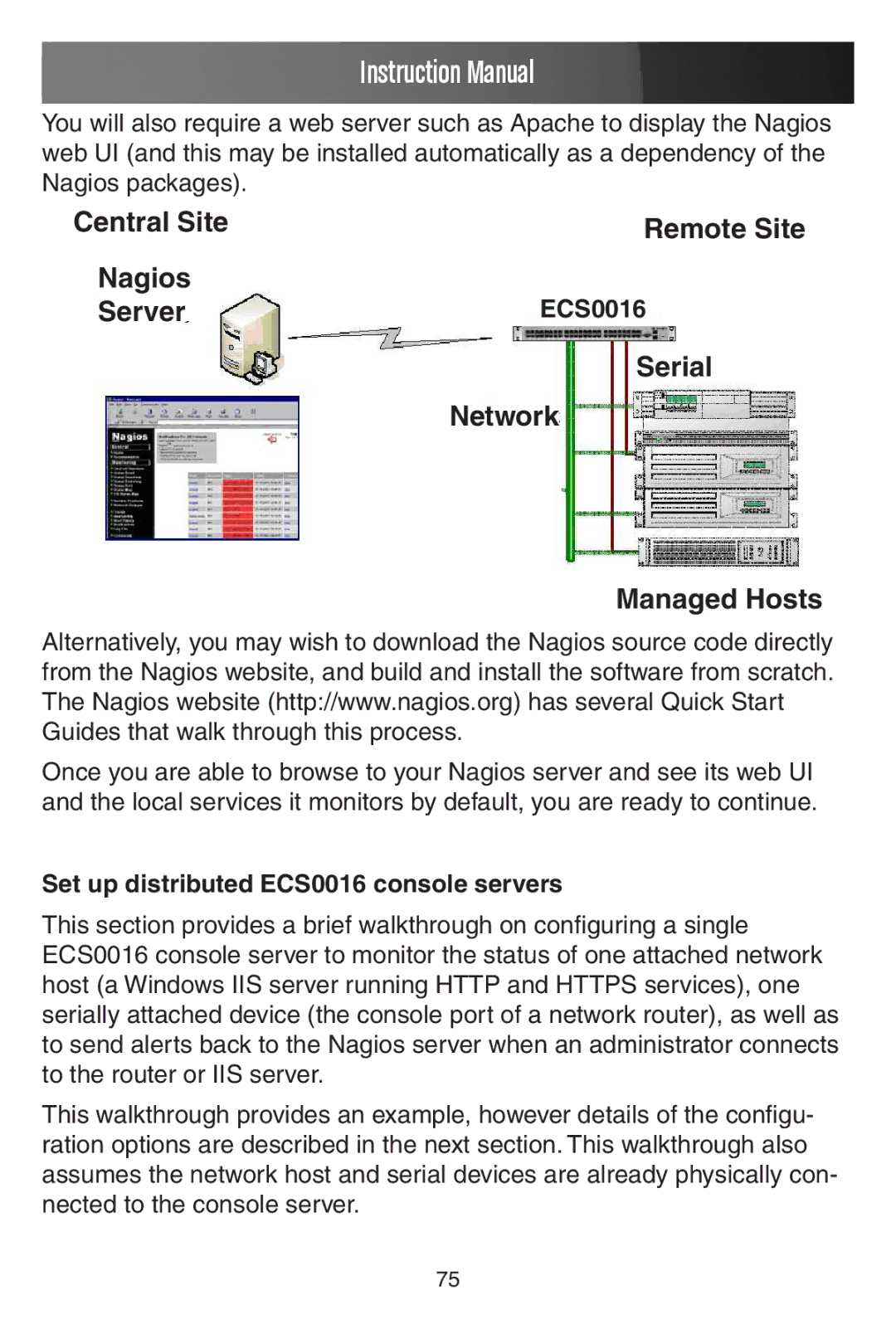
Instruction Manual
You will also require a web server such as Apache to display the Nagios web UI (and this may be installed automatically as a dependency of the Nagios packages).
Central Site |
|
| Remote Site | |||
|
|
|
|
|
|
|
| Nagios |
|
|
|
| |
| Server |
| ECS0016 | |||
|
|
|
|
|
|
|
|
|
|
|
| Serial | |
|
|
|
|
|
|
|
|
|
| Network | |||
Managed Hosts
Alternatively, you may wish to download the Nagios source code directly from the Nagios website, and build and install the software from scratch. The Nagios website (http://www.nagios.org) has several Quick Start Guides that walk through this process.
Once you are able to browse to your Nagios server and see its web UI and the local services it monitors by default, you are ready to continue.
Set up distributed ECS0016 console servers
This section provides a brief walkthrough on configuring a single ECS0016 console server to monitor the status of one attached network host (a Windows IIS server running HTTP and HTTPS services), one serially attached device (the console port of a network router), as well as to send alerts back to the Nagios server when an administrator connects to the router or IIS server.
This walkthrough provides an example, however details of the configu- ration options are described in the next section. This walkthrough also assumes the network host and serial devices are already physically con- nected to the console server.
75
